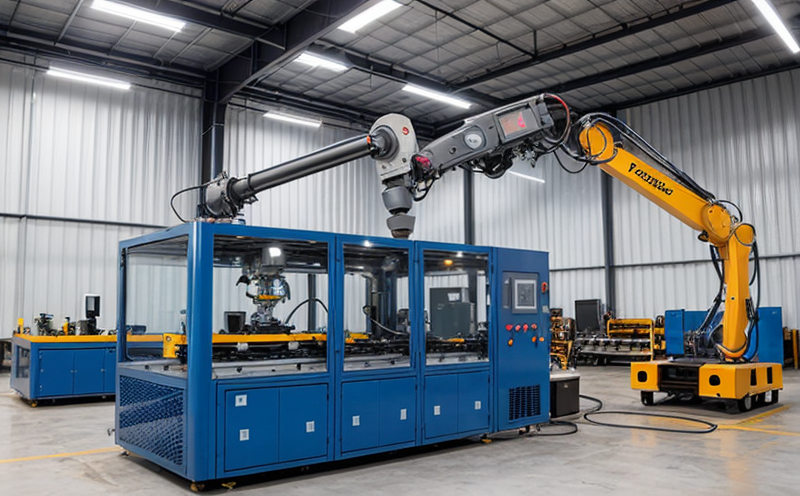ISO 15066 Collaborative Robot Safety Testing
The demand for collaborative robots (cobots) in industrial manufacturing and processing continues to grow, driven by the need for greater flexibility, safety, and efficiency. ISO 15066 sets stringent international standards for ensuring that cobots operate safely alongside human workers without compromising productivity or quality.
Our comprehensive testing services focus on assessing compliance with these standards, which are designed to protect against potential risks associated with the integration of cobots into industrial environments. This includes evaluating collision detection systems, force sensing capabilities, and emergency stop mechanisms—elements critical for safeguarding both human operators and machinery.
Our team uses advanced testing equipment calibrated according to ISO 15066 specifications to conduct rigorous evaluations under controlled conditions that mimic real-world scenarios. By doing so, we provide clients with accurate assessments of their cobot systems’ safety performance, helping them achieve compliance while minimizing downtime and ensuring continuous operation.
For quality managers and procurement personnel responsible for selecting reliable suppliers or implementing new technologies within your organization, our ISO 15066 collaborative robot safety testing ensures peace of mind regarding worker safety and regulatory adherence. Additionally, it supports R&D efforts by offering insights into performance improvements necessary to meet evolving standards.
Our approach combines technical expertise with practical experience in industrial robotics and automation systems. We understand the challenges faced when integrating cobots into existing production lines or new facilities. Our goal is not only to ensure compliance but also to provide actionable recommendations that enhance overall safety without sacrificing efficiency.
International Acceptance and Recognition
The International Organization for Standardization (ISO) plays a pivotal role in developing globally accepted standards across various industries. The ISO 15066 series specifically addresses the safety aspects of collaborative robots, making it essential reading for anyone involved with cobots.
These standards have been widely adopted by manufacturers worldwide due to their comprehensive approach to addressing potential hazards associated with human-robot interaction (HRI). Compliance with these guidelines provides assurance that the tested robot meets international expectations regarding safety features such as proximity sensors, force control systems, and emergency stop buttons.
Achieving ISO 15066 certification signifies more than just meeting regulatory requirements; it demonstrates a commitment to excellence in terms of workplace safety. It enhances your company’s reputation among clients who value reliability and security when choosing partners for collaborative automation projects.
Environmental and Sustainability Contributions
- Reduces waste by optimizing production processes through efficient use of resources.
- Promotes recycling initiatives by ensuring that all materials used in cobot manufacturing are recyclable or easily repurposed.
- Encourages energy efficiency measures, which contribute positively to reducing carbon footprints associated with industrial operations.
Use Cases and Application Examples
| Use Case | Description |
|---|---|
| Assembly Line Automation | Incorporating cobots into assembly lines allows for faster, more accurate part placement while maintaining worker safety. Our testing ensures that these systems meet all necessary criteria before deployment. |
| Palletizing Operations | Automated palletizing processes can be enhanced by integrating cobots capable of safely handling heavy loads without posing risks to employees. Testing according to ISO 15066 guarantees safe operation in this context. |
| Material Handling | Cobots can assist in moving materials around large warehouses or factories, reducing strain on human laborers and increasing throughput efficiency. Our tests ensure that such systems comply fully with safety standards. |





